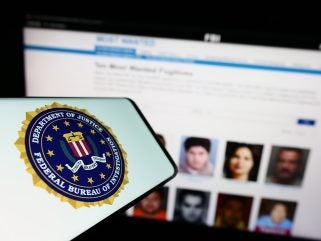
At an industry event in Las Vegas, US in early 2024, the Wine and Spirits Wholesalers of America (WSWA) president and CEO Francis Creighton sat down with FBI deputy director Paul Abbate to discuss organised retail crime (ORC) and cybersecurity.
ORC involves the large-scale theft of products that are then sold illegally either in brick-and-mortar stores or online. Factors influencing ORC’s rise in recent years include macroeconomics and inflation.

Discover B2B Marketing That Performs
Combine business intelligence and editorial excellence to reach engaged professionals across 36 leading media platforms.
The National Retail Federation (NRF) has reported that everyday consumer goods are the major target of ORC groups.
Major retailers such as Target have gone so far as to close multiple stores, citing threats to team safety.
The FBI’s role in organised retail crime
The FBI has a long history of combatting ORC groups and will continue to focus on the issue. “Those who are involved in organised crime will go where the money is,” Abbate stated.
Partnering with local and state law enforcement, FBI agents build an intelligence picture to try to get out in front of the threat. “It’s about identifying the actors,” Abbate added. “Who is doing it and who benefits.”

US Tariffs are shifting - will you react or anticipate?
Don’t let policy changes catch you off guard. Stay proactive with real-time data and expert analysis.
By GlobalDataHow retailers can use technology to halt crime
Malware or ransomware attacks can destroy retailers’ operations from the inside out. Abbate noted the importance of prevention and training measures: “When we look at where failures have occurred, a high percentage of the successful attacks come from a human failure.”
Companies should also have a plan laying out what they’ll do in case of an attack. “If you’re hit, reach out,” Abbate said. “There may be something we can do or intel we can share that can help.”
Retailers can implement hardware and software deterrents, such as RFID [radio frequency identification] chipping or shopping carts that lock and sound an alarm if a customer tries to leave without paying. Others are testing AI-enabled systems that scan for movements that may indicate theft is occurring.



